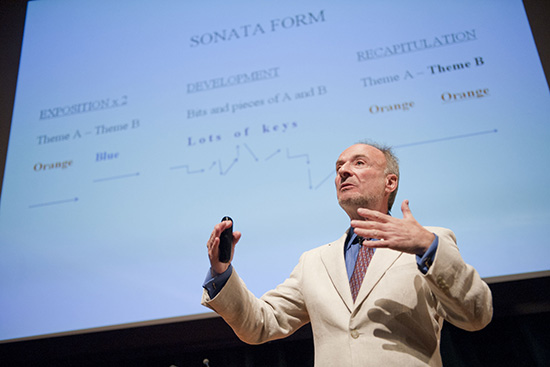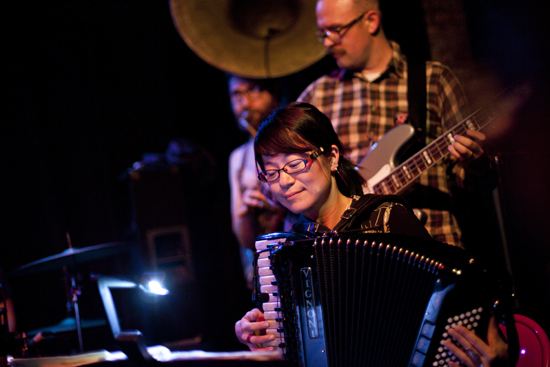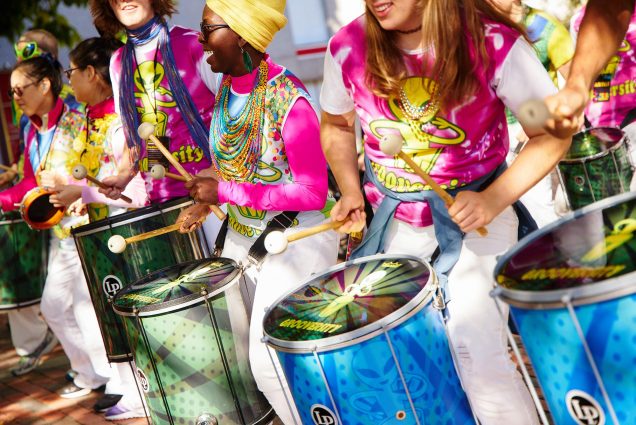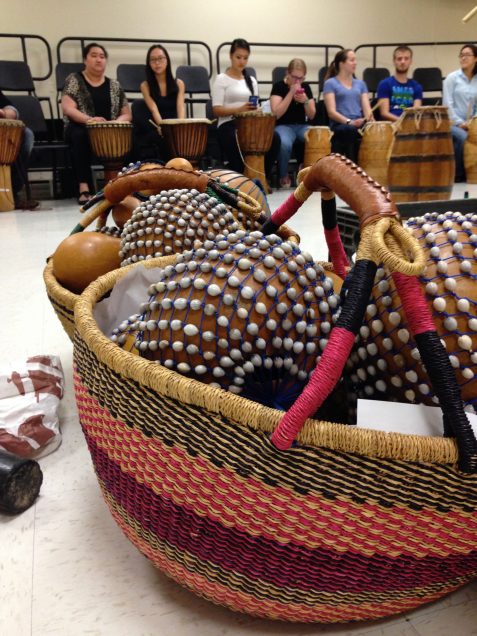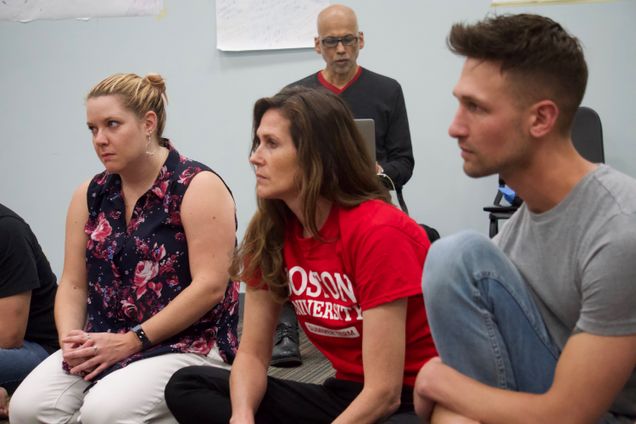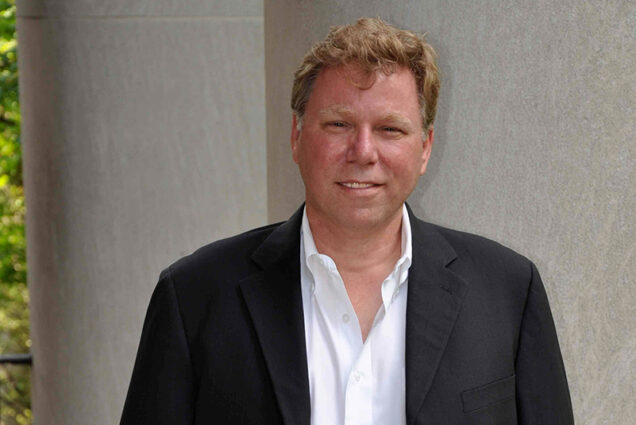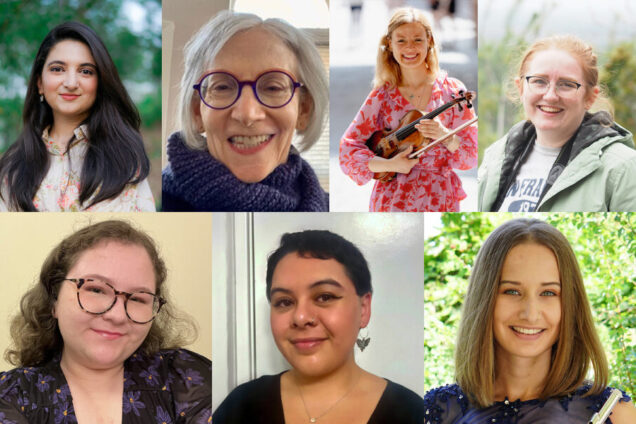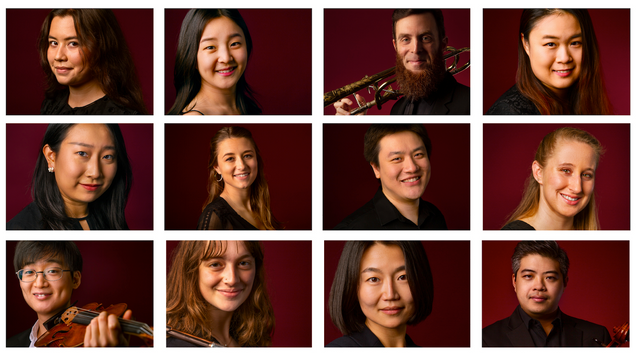GRADUATE STUDENTS
Ayaz Ahmed
Ayaz Ahmed is a first-year M.A. student in Ethnomusicology.
 Shari Antmann
Shari Antmann
Shari Antmann is a second-year M.A. student in Ethnomusicology, and the department assistant for Musicology and Ethnomusicology. She earned a B.A. in Music from Florida State University, and also studied at Brandeis University. Integrating her musical background as a hornist with her immense passion for intersectional feminism, Shari’s research centers intersectional gender studies, queer studies, and disability studies in music. She is currently pursuing her master’s thesis on how performers develop their drag personas, curate and prepare for lip-synch performances, and bring their personas to life to convey a queered perspective through lip-synching.
 Nathaniel Braddock
Nathaniel Braddock
Nathaniel Braddock is a fifth-year PhD student in Ethnomusicology specializing in African guitar styles. He completed an MA from Tufts University which focused on compositional and intellectual property issues in the West African “Yaa Amponsah” rhythm. Braddock performs solo fingerstyle guitar and in African style groups including Occidental Brothers Dance Band International. He has performed at the Montreal Jazz Festival, Music Meeting Nijmegen, Pitchfork Festival, Lincoln Center, the Kennedy Center, and many other venues. He was on faculty at Chicago’s Old Town School of Folk Music for ten years and continues to teach privately. He has collaborated with musicians from Ghana, Uganda, DRC, Mali, Zambia, Tanzania, Mocambique, and Guinea. He is currently composing music for choreographer Edisa Weeks’ multi-site dance work “Three Rites” which is supported by grants from NewMusic USA (2019) and the New England Foundation for the Arts (2020), and which premiers in NYC fall 2023. Braddock produces podcasts for Afropop Worldwide.
 Corin Duey
Corin Duey
Corin Duey is a second-year PhD student in Musicology/Ethnomusicology at Boston University. He grew up outside of Philadelphia, PA, where he spent years learning guitar and percussion. Prior to attending BU, he received a BA in Jazz Studies/ Performance (Guitar) from Temple University and taught private lessons for some time before receiving an MA in Humanities from the University of Chicago, where he completed his thesis on genre hybridities and social networks in modern jazz. His primary research interest currently revolves around the cultural production of space in underground techno music, dealing with themes of materiality and exclusivity. He has worked on a variety of projects in the past, which include topics such as religious influence in the improvisations of John Coltrane, organology and historiography of Indonesian kroncong, and musical censorship during Brazil’s military dictatorship.

Kevin Enriquez
Kevin Enriquez is a second-year M.A. student in Ethnomusicology. His main research areas consist of Mexican-American musical experiences, the rancheras of Mexico, applied ethnomusicology, critical organology, and the effects that the interplay of race, identity, and experience has on music reception and interpretation. He is an active mariachi musician in the greater Boston area and is also an affiliated ethnomusicologist with the Boston Symphony Orchestra.
Kumera (Kume) Genet 
Kumera Zekarias is a fourth-year PhD student in Ethnomusicology at Boston University. His research is focused on Afro-Colombian music and contemporary black urban politics in Colombia, considering how black Colombian music has been used for the intergenerational transmission of knowledge, and how Afro-Colombian music drives sociopolitical discourses on human rights, civil rights, and black subjectivities in Colombia.
 Jacqueline (Lin) Georgis
Jacqueline (Lin) Georgis
Jacqueline (Lin) Georgis is Postdoctoral Ethnomusicology student who received her PhD from Yale University. Prior to coming to BU, Lin has held teaching positions in the music departments at College of the Holy Cross (2022-2023) and Tufts University (Spring 2022). Her research and teaching interests include music of the Luso-African world, African popular music, migration, electronic dance music, urban youth culture, and global music history.
Her doctoral dissertation, “Batida of the Diaspora”, examines ideas of cultural hybridity and transnational exchange within the Lusophone-Atlantic. Through the lens of “batida”, a contemporary African-inspired electronic dance music created in Lisbon, Portugal, Lin traces the roots and development of Luso-African music in Lisbon from the mid-20th century to today, investigating the ways in which local producers, DJs, and record label managers have created alternative spaces of Afro-diasporic cultural expression and visibility.
You can read her work in Sonic Signatures (2023), an edited volume on the phenomenon of migrant and mobile music-making at night. She is currently working on a book on the late Cape Verdean singer, Cesária Évora, which is to be published as part of Bloomsbury’s 33 1/3 African Popular Music Series. As a classically trained cellist, Lin has been a member of various orchestras, from the Orchestra Lamoureux in Paris to local orchestras in Boston, including The Du Bois Orchestra and the Apollo Ensemble of Boston.
Ali Hajmalek
Ali Hajmalek is a first-year PhD student in Ethnomusicology.

Gabriela (Gaby) Henriquez
Gabriela Henríquez is a third-year Ph.D. student in Historical Musicology/Ethnomusicology at Boston University. She was born and raised in El Salvador, Central America. She obtained her undergraduate degree in Musicology at the University of Salamanca, Spain; and her Master’s in Arts in Ethnomusicology with First Class Honours at the University of Limerick, Ireland. Her research explores topics such as: Music and politics in El Salvador, Death Rituals in Mesoamerica, Music Theologies, Popular Piety and Syncretism, Magic and Religion, Sacred Sound and its relation with supernatural beings. She has been a speaker at conferences such as the Symposium of Patrimonies, Cultures, Traditions (University of Salamanca), Traditional Folk Song: Past, Present, Future (EFDSS, London), The British Forum for Ethnomusicology Annual Conference (Open University, Milton Keynes), among others.
 Christopher (Chris) Hodges
Christopher (Chris) Hodges
Christopher Hodges is a third-year PhD student in Historical Musicology. His main area of research is Sacred Harp, an American folk vocal music which originated in Boston around 1800. He is excited to use interdisciplinary approaches to investigate the topic, combining aspects of historical musicology and ethnomusicology as well as American studies and other related fields to study this subversive musical community. Sacred Harp also touches on many of his personal interests. With an M.M. in Organ Performance awarded from Boston University in 2022, Sacred Harp echoes the communal singing, historical performance, and amateur music-making which drives Christopher as a performer.
 Aimee Lents
Aimee Lents
Aimee Lents is a first-year M.A. student in ethnomusicology at Boston University. Originally from North Carolina, Aimee received her bachelor’s degree in music and sociology from Wake Forest University, where she studied carillon culture and the music of Asian cyborg women in cyberpunk dystopian cinema. Her current research interests include jazz, community music in arts justice, and the interplay between bodies and technologies. In her spare time, Aimee enjoys watching films and taking care of her two surviving houseplants.
 Katherine Miner
Katherine Miner
Katherine Miner is a first-year PhD student in Ethnomusicology. She received her BA in Music with a concentration in Ethnomusicology from Northeastern University in 2024. She is interested in music and identity, gender and sexuality studies, and music as resistance. Her undergraduate thesis looked at how Saidiya Hartman’s theory of “critical fabulation” can be applied to composers of vocal music, and how the life and agency of those murdered in the middle passage can be renegotiated through contemporary vocal music.
 Lance D. Morrison
Lance D. Morrison
Lance Morrison is a sixth-year PhD student in Historical Musicology from Pittsburg, Kansas, and completed An MA in Musicology at the University of Missouri under Judith Mabary, Michael Budds, and Maya Gibson. In addition to studying the style and religiosity of Clemens non Papa’s motets, he also pursues interests in popular music including early jazz. Boston’s character inspires his current work on the city’s hardcore punk tradition, with an emphasis on networks, affects, and bodies.
 Adebola (Bola) Ola
Adebola (Bola) Ola
Adebola Ola (Bola) is a fourth-year Ph.D. candidate in Ethnomusicology at Boston University. He holds a BA, BM (Hons), and MM from the University of Cape Town, South Africa. His research interests include Ethiopian melodic systems (kinit), West Asian modes (maqām), West African and South African popular music, and the proliferation of lute instruments across the Afro-Eurasian world. Currently, Bola’s research focuses on mapping the distribution of lamellophone instruments in West Africa, with a special emphasis on the àgídìgbo of the Yorùbá people in Southwestern Nigeria. He is particularly interested in how the àgídìgbo functions as a speech surrogate in Yorùbá popular music and within the broader Yorùbá socio-cultural context.
In 2024, Bola was selected for the Boston University Center for the Humanities summer PhD internship, where he had the opportunity to work with the Boston Symphony Orchestra’s Archive Department, digitizing and documenting exhibit panels spanning over a decade. Bola is a member of several professional organizations, including the International Council for Traditional Music (ICTM), the Society for Ethnomusicology (SEM), the South African Society for Research in Music (SASRIM), and the Association of Nigerian Musicologists (ANIM). Additionally, he holds a Licentiate Diploma in Music from Trinity College of Music, London, and a certificate in copyright law from Harvard University.
 Matthew (Matt) Prosper
Matthew (Matt) Prosper
Matthew Prosper is a first-year M.A. student in Historical Musicology at Boston University. He received his B.A. in history and political science from Union College in Schenectady, New York. His research interests include the traditional music of Upstate New York and the Adirondack Mountains, including folk songs and fiddle tunes. He has been active in the traditional music scene of Upstate New York, playing small shows and leading jam sessions open to the community. He plays the fiddle, banjo, autoharp, guitar, and Appalachian lap dulcimer.
 Megan Rees
Megan Rees
Megan Rees is a first-year M.A. student in Historical Musicology at Boston University. She graduated from the University of Rhode Island with a BM in Music Education in 2024. Her research areas include Early Music Studies, composers from the Medieval period, and cataloging works and biographies of women composers. During her time at the University of Rhode Island, Megan created a database to house the information and unpublished manuscripts of over 900 women composers. She also worked on engraving an unpublished manuscript composed by German composer, Emilie Mayer, later performed by the school’s orchestra.
 Chao Tian
Chao Tian
Chao Tian is a second-year Ph.D. student in Ethnomusicology. Her research focuses on musical improvisation, Chinese philosophy of music, musical linguistics, and intercultural musical collaboration. Chao received a B.A. in Music Performance and an M.A. in Musicology at the China Conservatory of Music. As a Chinese dulcimer musician, Chao was an artist-in-resident at the Strathmore Music Center, an alumna of Art Omi, and a NextLOOK artist at the University of Maryland. She studies American hammered dulcimer with Karen Ashbrook with the support of the Folklife Apprenticeship program of the Maryland State Arts Council. Chao’s research project, Unheard Sounds, explores the transformation of artistic language in the intercultural collaboration of immigrant artists. Her music project, From China to Appalachia, with Grammy Award winners Cathy Fink and Marcy Marxer is dedicated to investigating the artistic commonalities between Chinese and American musical traditions and they won the Best World Music Artist at the 2024 Wammie Awards.
 Wing Sze (Dorothy) Tse
Wing Sze (Dorothy) Tse
Wing Sze Dorothy Tse is a first-year M.A. student in Ethnomusicology at Boston University. She received her B.A. degree from Hong Kong Baptist University. Her research interest lies in medical ethnomusicology, and she is keen on exploring music and health-related issues such as music and emotion, musical imagery, disability studies, and thanatology. She focuses explicitly on Chinese and Indian music cultures, taking an interdisciplinary approach that combines theories and methodologies from ethnomusicology and music psychology. Her most recent research examined the relationship between devotional music and individual well-being in the Sikh community of Hong Kong. Beyond her academic pursuits, Tse is actively involved in community service, working with individuals ranging from those with mental illnesses to patients in end-of-life care. She is currently one of the student leaders of the Arts|Lab at the College of Fine Arts, where she leads music intervention sessions at the university cancer center.
RECENT ALUMNI
 Jeffrey Dyer (CFA’21) Ph.D.
Jeffrey Dyer (CFA’21) Ph.D.
Jeffrey Dyer is a visiting assistant professor of ethnomusicology at Indiana University’s Folklore and Ethnomusicology Department. His research ethnographically examines the intersection of music and sound, temporality and history, and people’s relations with the dead in Cambodia. Additional research topics include violence and trauma, political tensions and affinities across Southeast Asian nations, complications between prescriptive music notation and oral pedagogy, and Buddhist religiosity. He has received various fellowships and awards, including the Charlotte W. Newcombe Doctoral Dissertation Fellowship and the Society for Asian Music’s Martin Hatch Prize. Jeffrey’s scholarship has appeared in the journals Ethnomusicology, Yale Journal of Music & Religion, Religions, and Asian Music.
